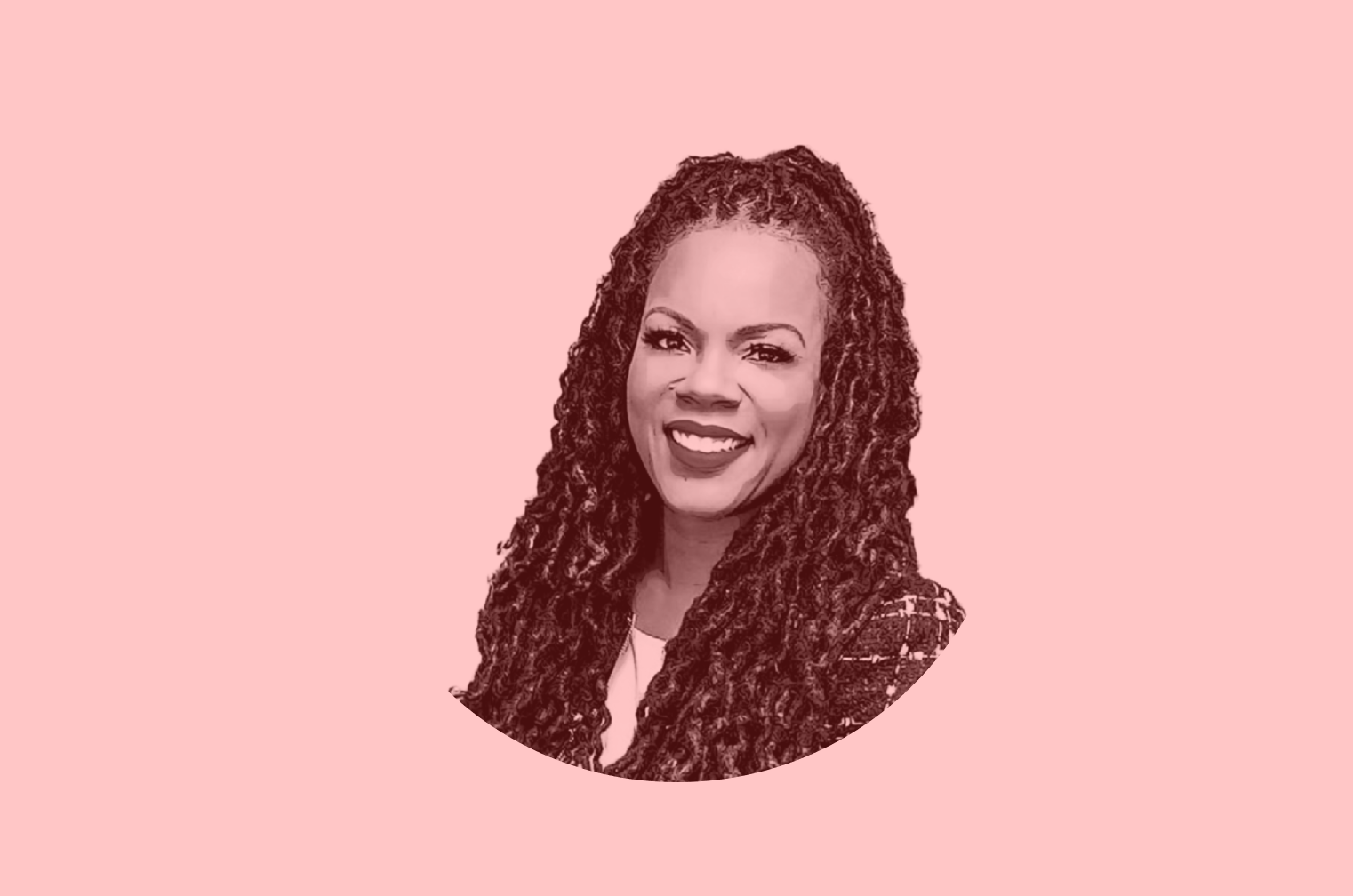
Dr. C Nicole Mason : Born Bright : A Young Girl’s Journey from Nothing to Something in America
- foodfightadmin
- November 24, 2023
- Food Bank Support, Fundraiser & Volunteer, Heavyweight 100, Hunger In America
- heavyweight series
- 0 Comments
Recently named one of the World’s 50 Greatest Leaders by Fortune Magazine, Dr. C. Nicole Mason is President/CEO Emeritus of the Institute for Women’s Policy Research (IWPR). Dr. Mason was the youngest person to lead IWPR – one of the major think tanks in Washington, D.C. – and also one of a few women of color to do so.
As one of the nation’s foremost intersectional researchers and scholars, Dr. C. Nicole Mason brings a fresh perspective and a wealth of experience to the Institute for Women’s Policy Research. For the past two decades, Dr. Mason has spearheaded research on issues relating to economic security, pay equity, and poverty. She is also an inaugural Ascend Fellow at the Aspen Institute in Washington, D.C.
Food Fight News sat down with Dr. Mason to discuss her new memoir, ‘Born Bright: A Young Girl’s Journey from Nothing to Something in America’ and her own personal experiences with food insecurity growing up in Los Angeles.
Andra : Dr. Mason, for readers who may not be familiar, could you briefly describe your memoir “BornBright“? What motivated you to share your experiences?
Nicole : Born Bright: A Young Girl’s Journey from Nothing to Something in America is my memoir. I was raised by a teenage single mother in Los Angeles, California. We were poor and experienced episodic homelessness, but I didn’t know growing up that I was poor. It wasn’t until I went to college that I had language for my experiences and heard about some of the programs that we’d benefited from, including SNAP. Before writing the book, I knew that I wanted to tell a different story about what it’s like growing up in poverty, from the perspective of a child who’s experiencing it. Also to weave in my public policy experience and really work to shift the narrative around poverty, the causes of poverty and how we might all work together to alleviate it.
Andra : You’ve written about believing that your family was the only one experiencing food shortages in the neighborhood and how your eventual revelation that many other children were facing similar food insecurity was powerful. Can you talk about that?
Nicole : What’s interesting is that so often the first meal of my day was eaten in the cafeteria or when I arrived at school. We also had free lunch so I didn’t really think much of it. Like many families today, if you receive public benefits, at the beginning of the month you may have a refrigerator full of food, but by the end of the month, you’re pretty much out. And I thought that my family was the only family that was experiencing those sorts of highs and lows. It wasn’t until my work, many years later, that I realized that food insecurity was really prevalent and that I lived in a low income neighborhood growing up so chances are that most of the families in my community were also struggling with food insecurity. But it wasn’t something that we talked about openly. When I learned that my family wasn’t alone, I felt like this must be a bigger problem than my family not knowing how to manage money or my mother buying the wrong things at the grocery store. It was more systemic than I obviously noticed as a child.
Andra : You mention your first meal often being in the school cafeteria. Can you shed light on the importance of school meal programs in providing a safety net for children?
Nicole : I do a lot of work around issues of economic security and food insecurity and it’s a really big problem. A couple of years ago, I did a study in rural Georgia on food insecurity and food deserts. What I know for sure is that for many families who are experiencing food insecurity, especially children, the National School Lunch Program or free meal programs, especially during the summer months, are really critical for children and families. Without them many children would go hungry or skip a meal, and then many families would go without. So those programs are really vital. In fact, I’m a believer that they should be free across the board. Many of these programs are income driven but I think making them universal, so anyone, any child can access them, would go a long way to alleviating some of the stigma around food insecurity while also making sure that any kid who’s hungry while they’re in school has access to food. I think that would make a big difference.
Andra : Expanding on that, how do you think narratives like “Born Bright” can influence policymakers and the broader public in understanding and combating hunger?
Nicole : I always say that the shortest bridge between two people is a story. I think humanizing people and experiences is really important. One of the reasons I wanted to write Born Bright was to challenge the narrative around poverty and why people are poor. To really provide a human face, a child’s voice talking about food insecurity or being hungry or experiencing homelessness. I don’t think we hear those stories enough. A lot of times, at the federal level, policy is really very sanitized. And people who live in poverty are not often in those conversations. Those who are experiencing problems like food insecurity or housing insecurity are not at the table. What I’m hoping is that, with Born Bright, it opens up the conversation wide, so policy makers can read it and not only find a really compelling story, but also some policy solutions, strategies and suggestions that they might consider in their own work or in their own legislation.
Andra : Absolutely! How do you feel about the current political climate affecting our ability to make meaningful change in these areas, given the level of distraction and tension?
Nicole : I really think we’re in a moment of crisis. Our political system is not working with all the consternation and fighting at the federal level. What makes me most upset is that when bills don’t get passed, if there’s no budget, if you cut childcare, it’s the families, it’s regular people who suffer. I think that gets lost in all of this infighting, grandstanding and performative politics. I really wish that we could go back to a time in public policy when families were at the center of these discussions but we’re just so far away from that.
Andra : That’s why I have a real soft spot in my heart for food banks. While federal programs are much more efficient and tackle a much bigger slice of the problem, the organic safety net of food banks, pantries, churches etc. that has emerged to catch those falling through the federal cracks is astounding and increasingly necessary.
Nicole : I was just at my Alma Mater and there’s a food bank there now, for students. We talk a lot about child hunger and food insecurity but we tend to assume that it ends at the young adult or adult level, but it doesn’t. Food banks at the level of higher education recognize that it’s a continuum, that food insecurity happens along one’s life trajectory. My kids’ elementary school and middle school also have food banks. I like the idea that, like you said, in the absence of a government response or federal response or when policy gets stuck even at the state level, communities are showing up and providing resources through food banks, so that families and children can eat while also removing the stigma. When food banks are everywhere, and it feels like going to the store, it normalizes the experience.
Andra : I do feel the pandemic played a bit of a role in helping destigmatize food insecurity. Overnight entire industries shut down and large swaths of people faced food insecurity & turned to food banks for the first time. It seemed like the stigma loosened slightly and food banks were broadcast in the media predominantly as a resource for communities in need.
Nicole : I think we’ve had this larger societal idea that it’s your fault if you’re food insecure, that you should be ashamed, that you must have done something wrong. The truth of the matter is, we don’t have a strong social safety net in this country anymore. If you lose your job, if your income is cut, you can be suddenly poor, you can be suddenly without resources, and it’s through no fault of your own. So I think removing that stigma around the deserving poor versus people who believe that poor people are bad, that they’re making bad choices is critical. This rhetoric translates to kids – there’s one story in Born Bright where I talk about a legislator in Georgia who said that children should have to clean up around their school in order to get free lunch so they can be taught the value of a hard day’s work. And I said to myself “Oh, my God, he’s talking about me. He would have wanted my five year old self to clean a room to get a meal.” The stigma begins really early, telling you that you don’t deserve it, that you better earn this right to eat.
Andra : A statistic came out earlier this year stating that one in three Americans can cover a $400 emergency expense, meaning two thirds of adults in this country are one (relatively minor) crisis away from food insecurity. Mind blowing.
For our readers, what message or call to action would you like them to take away from “Born Bright“?
Nicole : Contribute to your food banks, your local food banks. In terms of policy, be mindful of the policy that’s happening at the federal level, but also at the state level. The average SNAP benefit or food benefit for a family who’s impoverished is about $239 a month, which is sadly not enough. Advocate for more support, and more money for food programs. I also think it’s really very important to get to know and understand food insecurity, food deserts, to gain a pulse on what’s happening in your community. We live in very small communities and we live locally. Finding out what food insecurity looks like in your community is really important because you can start there. In my town we organize food drives for families, and these sorts of things are really easy to do. From the small to the large, I think we all have a role to play in helping to end and bringing awareness to food insecurity.








